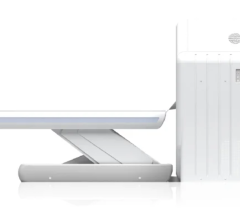January 13, 2010 - Changes in staffing in the emergency department impact the availability of diagnostic modalities or treatmentment options for care. As a result, stroke patients admitted to the hospital on the weekend are more likely to receive the clot-dissolving medication tissue plasminogen activator than patients admitted during the week, according to a study in the January issue of Archives of Neurology.
A combination of factors, including shortages in resources, expertise and providers, may lead to less aggressive and lower quality care on the weekends vs. weekdays.
According to the authors, Abby S. Kazley, Ph.D., and colleagues at Medical University of South Carolina, Charleston, differences in the aggressiveness of care may be explained by differences in access to equipment or clinicians, who might be busier with other patient care responsibilities during the week.
"Elective surgical procedures on weekends are rare, and this may contribute to decreased traffic and waiting time for diagnostic equipment, and result in quicker and more efficient diagnosis and determination of treatment," they wrote. "Reduced road traffic and job obligations on weekends may contribute to the possibility that patients with acute ischemic stroke arrive sooner at the hospital."
Although hospitals operate around the clock every day of the year, patients admitted on the weekends were 20 percent more likely to receive tissue plasminogen activator, which was administered to 229 weekend patients and 543 weekday patients. No statistically significant difference was observed in death rate between the two groups (3,993 patients admitted on weekdays died, compared with 1,420 admitted on weekends). The authors said the similarity in death rate indicates that patients who receive tissue plasminogen activator are more likely to die in the hospital than those who do not.
Despite the inconsistencies in care, the authors of the study found that stroke death rates appear similar among weekend and weekday admissions.
Reference: Arch Neurol. 2010;67(1):39-44).
For more information: www.jama.org


 July 25, 2024
July 25, 2024 








